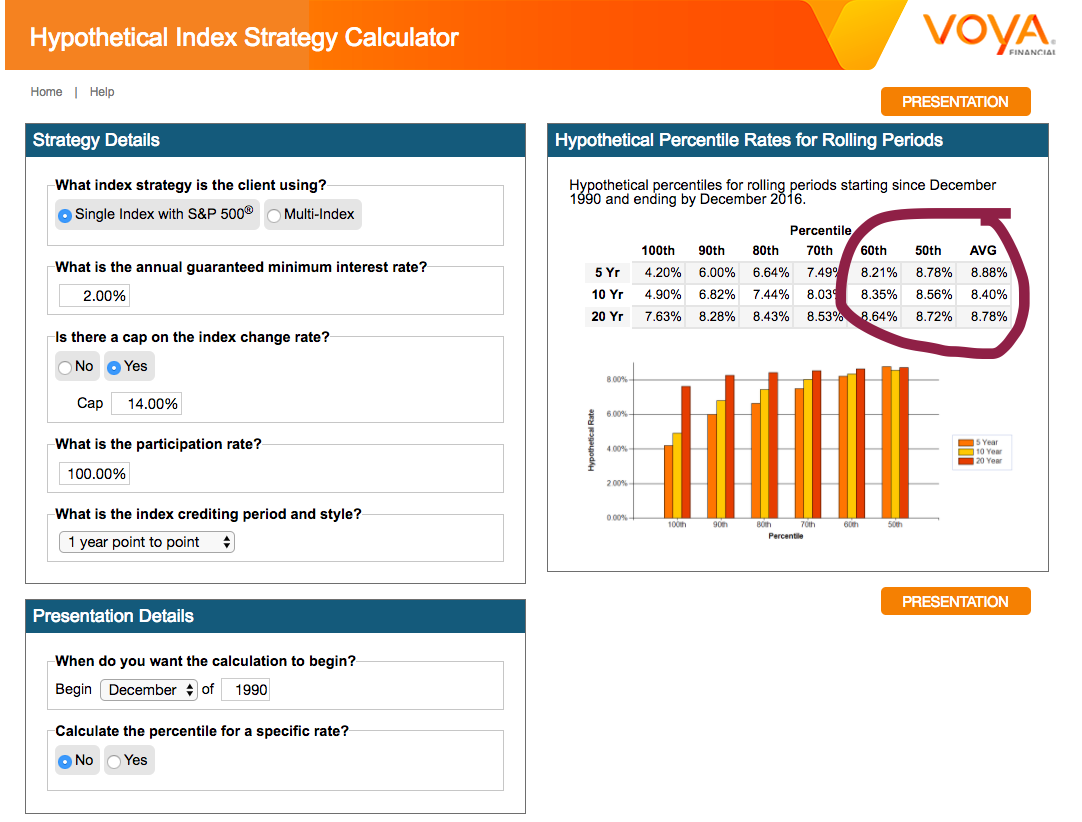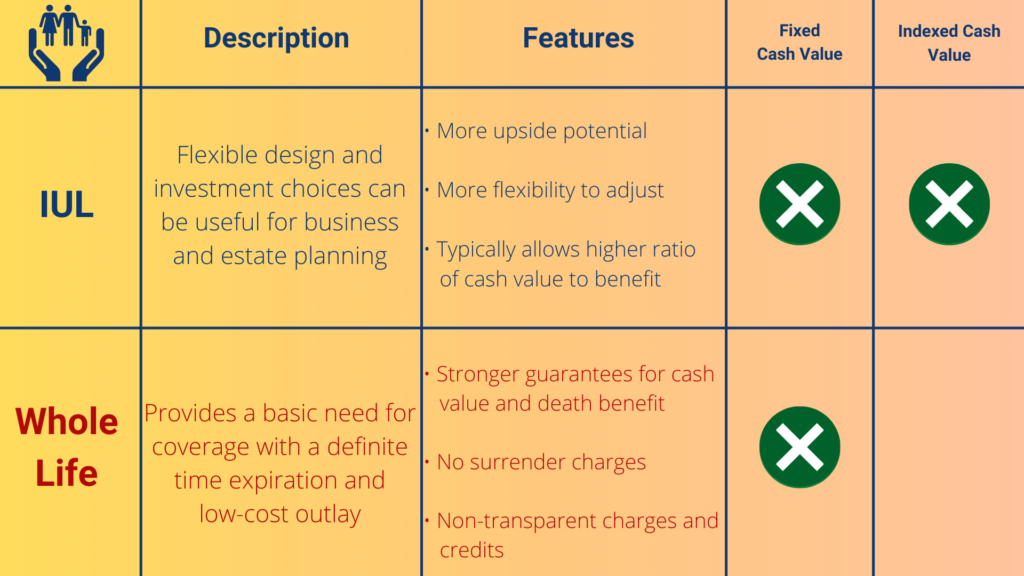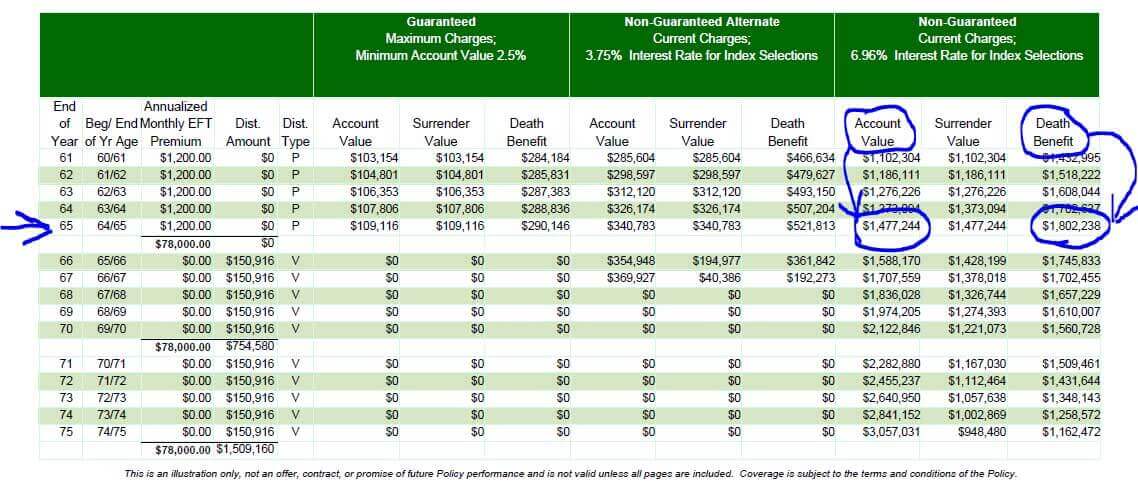All Categories
Featured
Table of Contents
1), usually in an effort to defeat their classification averages. This is a straw guy argument, and one IUL folks enjoy to make. Do they compare the IUL to something like the Lead Total Amount Stock Exchange Fund Admiral Shares with no load, an expenditure proportion (ER) of 5 basis points, a turnover ratio of 4.3%, and an extraordinary tax-efficient document of distributions? No, they contrast it to some terrible proactively managed fund with an 8% lots, a 2% ER, an 80% turnover ratio, and an awful record of short-term funding gain circulations.
Shared funds usually make annual taxable distributions to fund proprietors, also when the value of their fund has actually decreased in value. Mutual funds not just need income coverage (and the resulting annual taxation) when the mutual fund is rising in value, however can likewise enforce revenue tax obligations in a year when the fund has dropped in value.
You can tax-manage the fund, harvesting losses and gains in order to decrease taxable circulations to the capitalists, but that isn't somehow going to change the reported return of the fund. The possession of shared funds may need the shared fund owner to pay approximated taxes (transamerica index universal life insurance).

IULs are very easy to position so that, at the proprietor's fatality, the beneficiary is exempt to either revenue or estate taxes. The same tax obligation decrease methods do not work virtually also with shared funds. There are numerous, usually expensive, tax obligation catches connected with the moment trading of shared fund shares, catches that do not put on indexed life insurance policy.
Chances aren't very high that you're mosting likely to undergo the AMT as a result of your common fund circulations if you aren't without them. The rest of this one is half-truths at ideal. For example, while it holds true that there is no earnings tax as a result of your successors when they acquire the earnings of your IUL policy, it is additionally true that there is no earnings tax as a result of your beneficiaries when they inherit a common fund in a taxable account from you.
Universal Life Vs Term Insurance
The federal inheritance tax exception limit mores than $10 Million for a couple, and growing every year with rising cost of living. It's a non-issue for the vast majority of medical professionals, a lot less the rest of America. There are better means to prevent estate tax issues than acquiring financial investments with reduced returns. Mutual funds might cause earnings taxes of Social Safety advantages.

The development within the IUL is tax-deferred and may be taken as free of tax revenue using car loans. The policy proprietor (vs. the shared fund supervisor) is in control of his/her reportable earnings, thus allowing them to minimize and even remove the tax of their Social Safety and security benefits. This one is terrific.
Right here's another very little issue. It's true if you purchase a mutual fund for claim $10 per share right before the circulation date, and it distributes a $0.50 distribution, you are after that going to owe taxes (most likely 7-10 cents per share) despite the fact that you haven't yet had any kind of gains.
In the end, it's actually regarding the after-tax return, not exactly how much you pay in taxes. You're also possibly going to have even more money after paying those taxes. The record-keeping demands for possessing mutual funds are dramatically extra complicated.
With an IUL, one's documents are kept by the insurance coverage company, duplicates of annual statements are sent by mail to the owner, and circulations (if any kind of) are amounted to and reported at year end. This set is likewise kind of silly. Of course you should maintain your tax obligation records in case of an audit.
Iul Tax Free Retirement
Rarely a factor to get life insurance. Mutual funds are generally part of a decedent's probated estate.
In enhancement, they go through the hold-ups and costs of probate. The proceeds of the IUL plan, on the other hand, is constantly a non-probate circulation that passes outside of probate directly to one's named beneficiaries, and is as a result exempt to one's posthumous financial institutions, undesirable public disclosure, or similar delays and expenses.
We covered this one under # 7, yet just to recap, if you have a taxable shared fund account, you have to place it in a revocable trust (or also easier, utilize the Transfer on Death designation) in order to stay clear of probate. Medicaid disqualification and life time income. An IUL can provide their owners with a stream of revenue for their whole lifetime, regardless of for how long they live.

This is valuable when arranging one's events, and converting properties to revenue prior to a nursing home confinement. Mutual funds can not be transformed in a similar manner, and are generally taken into consideration countable Medicaid assets. This is another dumb one advocating that inadequate individuals (you understand, the ones who need Medicaid, a government program for the bad, to pay for their retirement home) must make use of IUL as opposed to mutual funds.
Mutual Of Omaha Universal Life Insurance
And life insurance policy looks horrible when contrasted fairly versus a retirement account. Second, people who have cash to buy IUL over and beyond their retired life accounts are mosting likely to need to be terrible at taking care of money in order to ever get approved for Medicaid to pay for their retirement home expenses.
Persistent and incurable disease motorcyclist. All policies will permit a proprietor's very easy accessibility to cash money from their policy, often waiving any type of surrender charges when such people experience a serious illness, require at-home treatment, or end up being constrained to an assisted living facility. Mutual funds do not provide a similar waiver when contingent deferred sales fees still put on a shared fund account whose owner requires to offer some shares to fund the expenses of such a stay.
Index Life Insurance Companies
Yet you reach pay even more for that benefit (rider) with an insurance policy. What a good deal! Indexed global life insurance offers survivor benefit to the recipients of the IUL proprietors, and neither the proprietor nor the recipient can ever shed money because of a down market. Shared funds provide no such warranties or death benefits of any kind of kind.
I certainly don't require one after I reach economic independence. Do I desire one? On average, a buyer of life insurance pays for the real cost of the life insurance advantage, plus the costs of the policy, plus the revenues of the insurance firm.
Equity Indexed Insurance
I'm not completely sure why Mr. Morais tossed in the whole "you can not shed cash" once again right here as it was covered quite well in # 1. He just intended to repeat the most effective marketing point for these points I suppose. Once more, you don't lose nominal dollars, but you can lose actual bucks, along with face significant chance expense as a result of reduced returns.

An indexed global life insurance plan proprietor might trade their policy for an entirely various policy without setting off revenue tax obligations. A mutual fund owner can stagnate funds from one common fund firm to one more without selling his shares at the previous (therefore setting off a taxed event), and buying brand-new shares at the latter, typically subject to sales charges at both.
While it is true that you can trade one insurance policy for another, the factor that people do this is that the initial one is such an awful plan that even after buying a new one and undergoing the early, adverse return years, you'll still appear in advance. If they were marketed the ideal policy the very first time, they should not have any type of need to ever before exchange it and experience the very early, negative return years once again.
Latest Posts
Iul Training
Max Funded Insurance Contract
Indexed Whole Life Policy